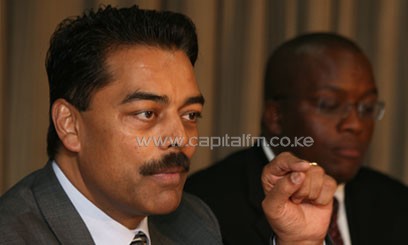
BIDCO Chief Executive Officer Vimal Shah said that Kenya has the capacity to be self sufficient in food production if proper measures are put in place/FILE
Speaking at a symposium in Nairobi on Tuesday, BIDCO Chief Executive Officer Vimal Shah said that Kenya has the capacity to be self sufficient in food production if proper measures are put in place.
“We tend to rely on the climate patterns… if it doesn’t favour us we die of hunger. We should invest in irrigation schemes that help during dry seasons and also in arid and semi-arid areas,” he told the Sustainable Agribusiness Conference.
Shah said that there is need for linkages across the value chain from the supplier to the consumer as well as inclusive partnerships with the government and the private sector.
“Kenya needs to really ramp up its capacity. We have soil, we have the land; we have human capital. We just need to make sure that our policies are very clear,” he advised.
He also revealed that the Kenya Agribusiness and Agro Industry Alliance will wholly lobby issues affecting the sector.
“We have been working differently in the sector. Now we want to bring all the players in the market that include the processors, farmers, seed providers and technology providers and solve our problems as one cluster,” he said.
The four-day conference organised by the International Finance Corporation (IFC) has brought together the private sector, donors, civil society and financial institutions to discuss how to connect farmers to large markets, address climate change and food security in Africa.
IFC announced that it aims to reach about one million small holder farmers in Africa by promoting sustainable agriculture and agribusiness practices.
Opening the event, IFC’s Sustainable Business Advisory Program Manager Sara Clancy said that African countries face numerous challenges that keep them from realising the productive potential of their land.
“Weather, pests, crop disease and market failures make farming an inherently risky enterprise in Sub Saharan Africa,” she said.
Agriculture accounts for nearly half of the continent’s GDP and employs 60 percent of the labour force.
The World Bank estimates that by 2030, if production is optimised, agriculture could develop into a one trillion dollar industry in Sub Saharan Africa.


































